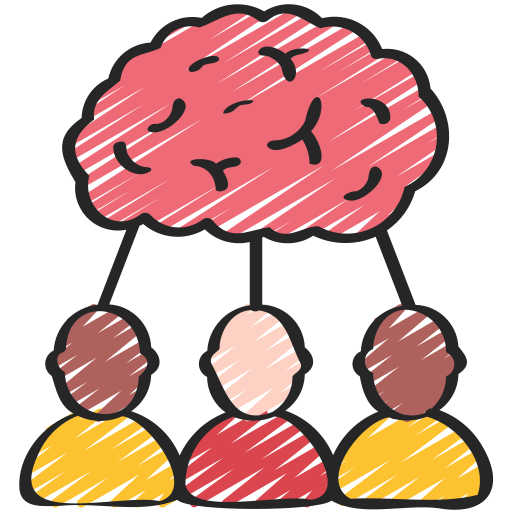Therapy Services
Getting Started: Your Journey to
ABA Services with Us

Reformed ABA generally refers to a shift in the traditional practices of applied behavior analysis, aimed at making ABA therapy more compassionate, individualized, and client-centered. This approach considers not only the effectiveness of behavioral interventions but also the dignity, preferences, and autonomy of clients, particularly those with autism or other developmental conditions.
At ABA Your Way, we believe that ABA reform leads to more respectful, meaningful, and empowering outcomes. By adopting these progressive strategies, we aim to provide services that respect individual differences, foster independence, and support families in a way that feels natural and achievable.

Step 1: Initial Consultation
- Briefly explain the purpose of the consultation (e.g., understanding the child’s needs, discussing concerns, and answering questions about ABA therapy).
- Provide options for scheduling (e.g., phone, online form, or in-person meeting).
- Highlight what parents should prepare or bring to the consultation (e.g., relevant medical records or previous assessments).

Step 2: Intake and Assessment
- Describe the intake process, including completing necessary paperwork and consent forms.
- Outline what the assessment involves (e.g., direct observation, parent interviews, and standardized assessments).
- Explain the importance of the assessment in developing a personalized treatment plan for the child.

Step 3: Review and Approval
- Detail how the assessment results are reviewed and how the treatment plan is developed.
- Provide information on reviewing the treatment plan with parents, getting their input, and finalizing it.
- Mention any steps needed for insurance verification or approval for ser

Step 5: Ongoing Support and Communication
- Highlight your commitment to open communication with parents throughout the therapy process.
- Describe how parents will receive updates on their child’s progress, such as regular meetings or reports.
- Provide information on how parents can contact the team with questions or concerns.
Aba Reform and Why it Matters
Reformed ABA generally refers to a shift in the traditional practices of applied behavior analysis, aimed at making ABA therapy more compassionate, individualized, and client-centered. This approach considers not only the effectiveness of behavioral interventions but also the dignity, preferences, and autonomy of clients, particularly those with autism or other developmental conditions.
At ABA Your Way, we believe that ABA reform leads to more respectful, meaningful, and empowering outcomes. By adopting these progressive strategies, we aim to provide services that respect individual differences, foster independence, and support families in a way that feels natural and achievable.

5 Steps in the ABA Process
Key aspects of reformed ABA include:

1. Focus on Autonomy
Reformed ABA emphasizes respecting client choice and control over their therapy, which can include honoring client preferences, consent, and individual goals.

2. Minimizing Coercion
Traditional ABA has sometimes been critiqued for using compliance-based strategies. Reformed ABA shifts towards teaching functional skills in ways that don’t rely on excessive prompts or coercive techniques, focusing instead on natural reinforcement.

3. Trauma-Informed Care
A reformed approach incorporates trauma-informed practices to ensure that therapy does not inadvertently contribute to stress or psychological harm. Practitioners are trained to understand potential triggers and work in a way that promotes emotional safety.

4. Emphasis on Social Validity
Social validity is about ensuring that the goals, procedures, and outcomes of ABA are meaningful and acceptable to clients and their families. Goals are chosen with input from clients, families, and other stakeholders to ensure they align with the individual’s values.

5. Reduction of Problematic Practices
Some traditional ABA practices, like certain types of extinction procedures, have faced criticism. Reformed ABA may involve reducing or modifying these approaches, favoring strategies that consider both effectiveness and the client’s comfort and well-being.

6. Collaboration with Clients and Families
Collaboration with Clients and Families: Reformed ABA actively involves families in goal-setting and intervention planning, and emphasizes collaboration over a top-down approach.

Frequently Asked Questions
If your question isn’t answered below, view our full list of FAQs here.
What services does ABA Your Way provide?
ABA Your Way offers comprehensive ABA therapy services designed to meet each client’s unique needs. We focus on skill-building, communication, and behavior management through personalized interventions. Our approach is client-centered, compassionate, and designed to be effective in real-world settings.
How does ABA Your Way approach ABA differently than traditional providers?
At ABA Your Way, we believe in ABA reform, which means prioritizing client autonomy, reducing coercive techniques, and emphasizing naturalistic, developmentally appropriate interventions. We strive to deliver compassionate, individualized care that respects each client’s preferences and promotes their independence.
What is ABA reform, and why is it important?
ABA reform focuses on making ABA therapy more client-centered, respectful, and trauma-informed. This approach values the individual’s autonomy and prioritizes their comfort, using naturalistic methods that build meaningful skills in a supportive way. We believe ABA reform leads to better outcomes and a more positive experience for our clients.
What are naturalistic developmental behavioral solutions (NDBS), and how do they benefit my child?
NDBS is an approach that integrates ABA principles with natural, play-based interactions. Instead of structured drills, NDBS allows children to learn in natural settings and everyday routines. This method fosters skill development in a way that feels engaging and meaningful.
How does ABA Your Way involve parents in the therapy process?
We believe parents are an essential part of the therapy team. We offer guidance, training, and strategies that parents can use at home, reinforcing what’s learned in therapy and helping to build skills in everyday settings. Our approach aims to empower parents to support their child’s progress naturally.
Does my child have to sit through structured drills during sessions?
No, our sessions are designed to be as natural and engaging as possible. We use play and natural interactions to teach skills, allowing children to learn in a relaxed environment that aligns with their interests.
What types of goals will my child work on during therapy?
Goals are individualized based on the needs of each client. They may include communication skills, social skills, daily living skills, and behavior management. We work with families to ensure goals are meaningful, achievable, and align with the client’s development.
Will therapy sessions be held in our home, at a clinic, or in another setting?
Our therapy sessions can be held in various settings, depending on what works best for each client. We offer in-home, community, and sometimes virtual sessions to support learning in the environments where skills are most needed.
How do you track and measure progress in therapy?
We collect data on specific goals during each session and regularly review this information to assess progress. Families receive regular updates and reports, allowing them to see their child’s development over time.
What are SOAP notes, and why are they used in ABA?
SOAP notes are a method of documentation used to summarize each session’s objectives, observations, and outcomes. They help therapists track progress consistently and communicate with the entire therapy team to ensure continuity and quality of care.
How do you ensure my child’s comfort and safety during sessions?
We prioritize creating a comfortable, supportive environment for every client. Our therapists are trained in trauma-informed care and follow individualized plans that consider each child’s unique needs and preferences.
Do you use physical prompting in your therapy?
No, we do not use physical prompting. Instead, we use techniques that encourage natural learning, respecting each client’s boundaries and autonomy.
Schedule A Consultation
We are ready to help. Contact Us Today!
At ABA Your Way, we’re here to answer your questions and support your child’s journey. Reach out to us today and discover how we can make a difference together.
Support Office Hours
- Office: (800) 724-7451
- Fax: (888) 966-0057
- Serving Orange County, Los Angeles, Riverside, San Diego, San Bernardino & High Desert Communities
